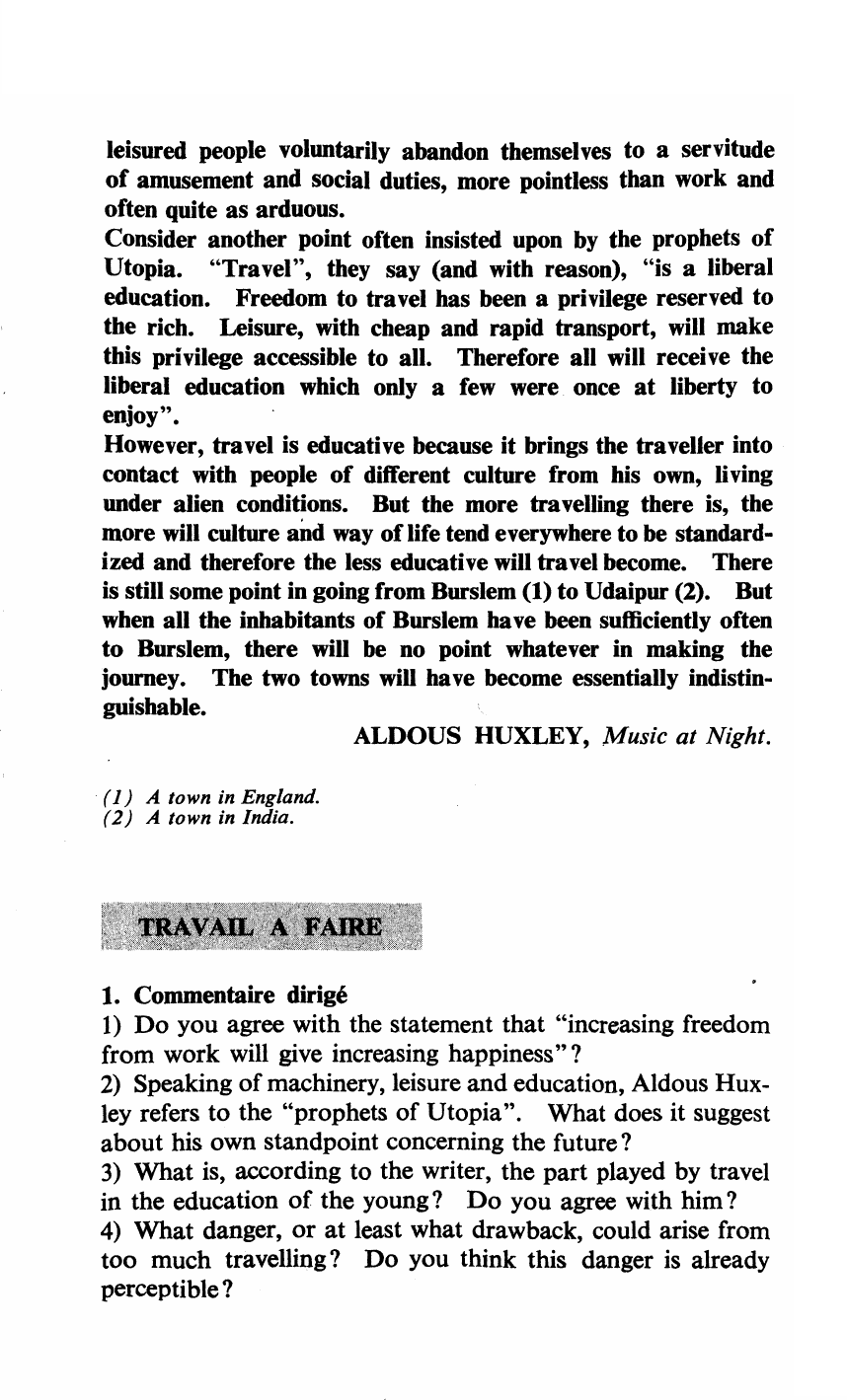FREEDOM, LEISURE AND EDUCATION
Publié le 07/02/2012

Extrait du document
"Perfected machinery", say the prophets of Utopia, "will give us increasing freedom from work, and increasing freedom from work will give increasing happiness." But, among the completely leisured, acute boredom is often suffered. As soon, moreover, as they are freed from the servitude of labour, many leisured people voluntarily abandon themselves to a servitude of amusement and social duties, more pointless tban work and often quite as arduous. Consider another point often insisted upon by the prophets of Utopia. "Travel", they say (and with reason), "is a liberal education. Freedom to travel bas been a privllege reserved to the rich. Leisure, with cheap and rapid transport, will make this privilege accessible to ali. Therefore ali will receive the liberal education which only a few were once at liberty to enjoy".
«
leisured people voluntarily abandon themselves to a servitude
of amusement and social duties, more pointless tban work and
often quite as arduous.
Consider another point often insisted upon
by the prophets of
Utopia.
"Travel", they say (and with reason), "is a liberal
education.
Freedom to travel
bas been a privllege reserved to
the rich.
Leisure, with cheap and rapid
transport, will make
this privilege accessible to ali.
Therefore ali will receive the
liberal education which only a
few were once at liberty to
enjoy".
However, travet is educative because it brings the traveUer into
contact with people
of different culture from his own, living
onder alien conditions.
But the more travelling there is, the
more will culture
aÎld way of Hfe tend everywhere to be standard
ized and therefore the less educative will travet become.
There
is still some point in going from Burslem
(1) to Udaipur (2).
But
when ali the inhabitants of Burslem have been sufficiently often
to Burslem, there will be no point whatever in making the
journey.
The two towns will have become essentially indistin
guishable.
( 1) A town in England.
(2) A town in Jndia.
1.
Commentaire dirigé
ALDOUS HUXLEY, Music at Night.
1) Do you agree with the statement that "increasing freedom
from work will give increasing
happiness" ?
2) Speaking of machinery, leisure and education, Aldous Hux
ley refers to the "prophets of Utopia".
What does it suggest
about his own stand point concerning the future?
3) What is, according to the writer, the part played by travet
in the education
of the young? Do you agree with him?
4) What danger, or at least what drawback, could arise from
too much travelling? Do you think this danger is already
perceptible?.
»
↓↓↓ APERÇU DU DOCUMENT ↓↓↓
Liens utiles
- Social media and freedom of speech
- Libertas Roman The personification of liberty, considered by some a goddess who protected the freedom and liberty of Roman citizens, even from despots and dictators, and who granted liberty to freed slaves.
- TEXTE D’ETUDE : Jean-Jacques Rousseau, Emile ou De l’Education, 1762, chapitre III
- Ideology and Rationality in the History of the Life Sciences
- Relationship between religion, spirituality, and young Lebanese university students’ well-being.


